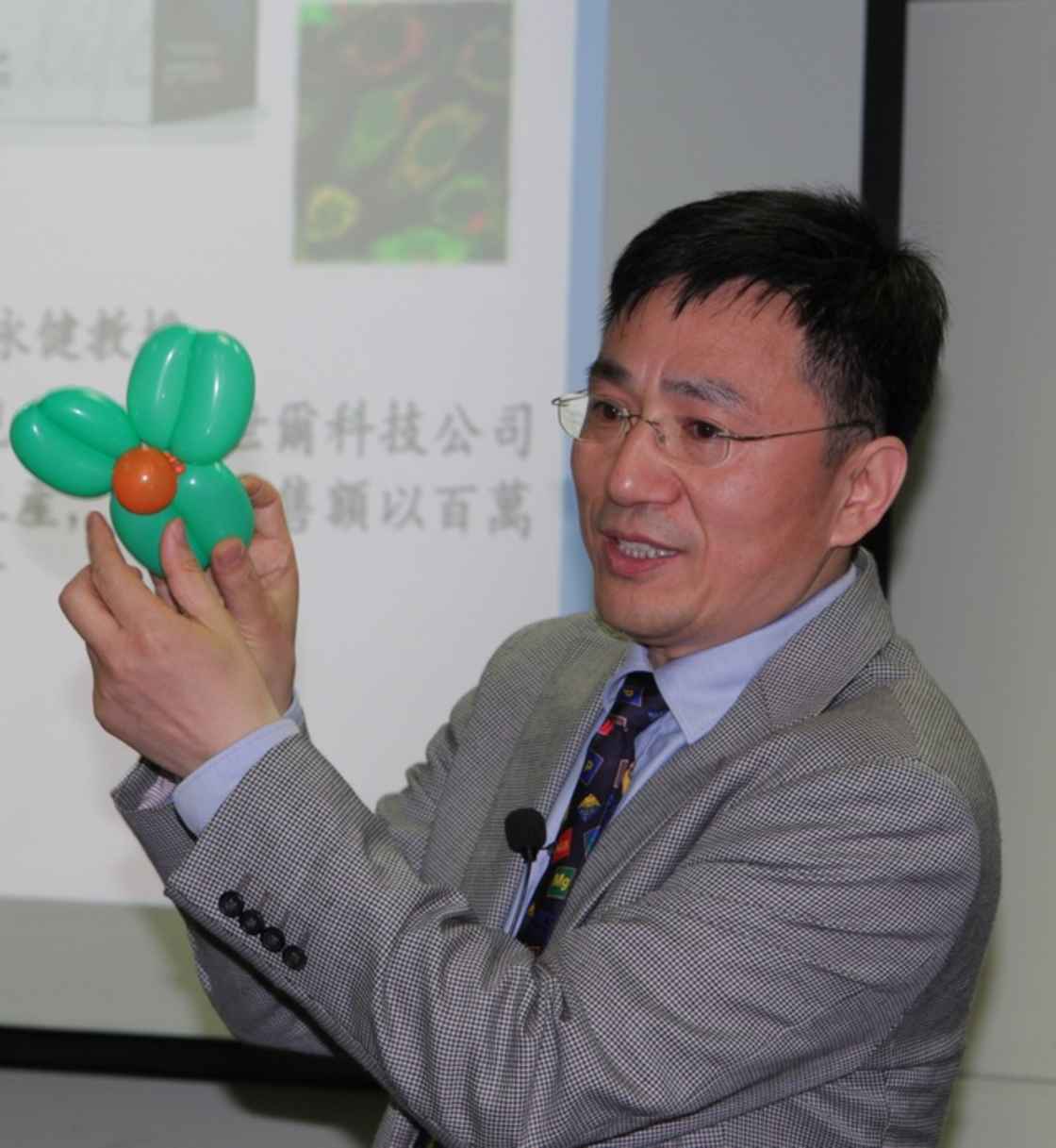Tracing proteins in living cells
Sun is a leading expert in the field of biological inorganic chemistry and metallomics. Receiving the Croucher Senior Research Fellowship in 2010 enabled Sun to take a break from teaching commitments, to explore and move on to a new research area of metalloproteomics, studying the role of metalloproteins in human health and disease. With the special property of variable oxidation states in metals, their binding to proteins (metalloprotein complexes) facilitates many enzyme-catalytic processes in cells.
The development of the nickel-nitrilotriacetic acid (Ni-NTA) system in the 1970s was a major innovation in the purification of recombinant proteins with polyhistidine tags, though a second breakthrough came about 10 years later in the pull-down analyses of phosphorylated proteins. “Our newly developed fluorescent probe promises to be the third major breakthrough in the field since we can now visualise proteins in the living cell,” explains Sun.

Sun’s team developed the first small molecule-based fluorescent probe after overcoming the challenges of getting the probe across the cell membrane, ensuring that the probe does not disturb the natural functions of target proteins, and is not toxic to cells. Published in PNAS in March this year, the novel probe provides quick labelling of metalloproteins or overexpressed histidine-tagged proteins inside cells for observing their precise localisation and studying their functions in various types of cells, ranging from bacteria to mammalian cells and even to highly complex plant tissues. “The novel fluorescent probe allows us to understand the function of proteins, especially metalloproteins, which make up 30% of all human proteins, in human health and disease conditions,” explained Sun. The new fluorescent probe provides an inexpensive (only one-fourth of the cost of current methods) and effective tool for real-time monitoring of cellular activities.
Sun also led the development of probes with different colours that enable the observation of the precise localisation of multiple proteins within the same cells simultaneously, which is critical in visualising protein-protein interactions. These probes may be used to visualise the invasion events of pathogenic microbes, to analyse drug action on their targets in cells, to assess the effectiveness of target drugs on cancer cells, to trace and understand drug resistance in bacteria, and facilitate drug screening for future drug discovery. For instance, Sun’s team demonstrated that bismuth was mainly passively absorbed, sequestrated as bismuth-glutathione complexes, and transported into vesicles by the multidrug resistance protein transporter, thus elucidating the metabolic pathway of bismuth drugs in human cells (published in PNAS 2015).
Sun currently spends about one-third of his time teaching undergraduates, and the remainder in postgraduate supervision. “My research team comprises many research postgraduates and I spend a majority of my time stimulating their interest in the subject. The senior students help to guide their juniors in their research projects.” He received the HKU Outstanding Research Student Supervisor Award in 2013 in recognition of his excellence in teaching and research.
In the foreseeable future, Sun wishes to contribute to society in developing preventive medicine, “Chemistry has been in a very close relationship with medicine. It is my hope to develop diagnostic tools for early diagnosis of cancer and ageing-related diseases, even before symptoms appear.”
Sun received his PhD from the University of London (Birkbeck) in 1996. After two years as a Research Fellow at the University of Edinburgh, he joined the Department of Chemistry at the University of Hong Kong as an Assistant Professor and was promoted to Professor in 2007. He is the recipient of the Croucher Senior Research Fellowship (2010–2011), the National Natural Science Foundation of China (NSFC) Outstanding Young Scholar Award (2005), and the HKU Outstanding Researcher Award (2009–2010). As of early September 2015, Sun has published 149 research articles with a total of 6,365 citations.
To view Dr Sun’s personal Croucher profile, please click here.